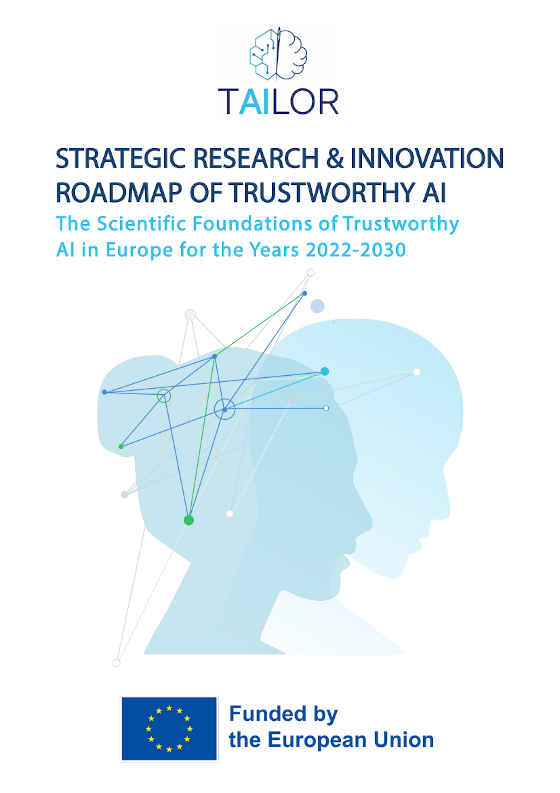 This document is the first version of the Strategic Research and Innovation Roadmap of the TAILOR project, focussed on Trustworthy Artificial Intelligence (AI) through Learning, Optimization and Reasoning. The project objectives are extremely ambitious, and address topics that are currently very actively investigated. Therefore, defining a roadmap is itself an ambitious goal. We have started analysing many documents containing Roadmaps and Research and Innovation agendas of AI related initiatives (in particular we have analysed the AI4EU Strategic Research and Innovation Agenda and the AI, Data and Robotics PPP Strategic Research Innovation and Deployment Agenda and the AI Watch Index 2021). Also, strategic and roadmapping documents of initiatives from connected fields (e.g., HPC, IoT, Cybersecurity) have been evaluated to find connections and synergies.
This document is the first version of the Strategic Research and Innovation Roadmap of the TAILOR project, focussed on Trustworthy Artificial Intelligence (AI) through Learning, Optimization and Reasoning. The project objectives are extremely ambitious, and address topics that are currently very actively investigated. Therefore, defining a roadmap is itself an ambitious goal. We have started analysing many documents containing Roadmaps and Research and Innovation agendas of AI related initiatives (in particular we have analysed the AI4EU Strategic Research and Innovation Agenda and the AI, Data and Robotics PPP Strategic Research Innovation and Deployment Agenda and the AI Watch Index 2021). Also, strategic and roadmapping documents of initiatives from connected fields (e.g., HPC, IoT, Cybersecurity) have been evaluated to find connections and synergies.
As in the Ethical Guidelines for Trustworthy Artificial Intelligence document released in 2019 by the High-Level Expert Group on AI, we need to consolidate ongoing research activities, solid foundational theories, and methodological guidelines that are not yet common in neither industry nor academia. To this end, we have consolidated input coming from scientific and innovation work packages of the TAILOR Network of Excellence, that have released impressive scientific results in one and a half year, but these results still need to be conceptualised, organised, and classified in a rationale shaping future avenues.
Still, in the limited time passed from the project start, the TAILOR consortium has identified interesting research directions and urgent industrial needs. Prioritisation of actions and their timing is not yet perfect, but we are confident that a clear plan will be available for the second and final version of the SRIR.
The document is organised with a short snapshot of the state of European research and innovation landscape. We then define the challenges related to the dimensions of trustworthy AI, namely explainability, safety, robustness, fairness, accountability, privacy and sustainability.
Following TAILOR work packages, learning, optimization and reasoning are considered and several aspects of their integration are analysed: unifying formalisms for integrating reasoning and learning, learning and reasoning on how to act, social perspectives, and AutoAI. A last section is devoted to Foundation models that have been gaining momentum since the TAILOR proposal was written.
Download: Strategic Research and Innovation Roadmap of Trustworthy AI (1.102 KB).
Download from DIGITAL HEALTH NEWS: Strategic Research and Innovation Roadmap of Trustworthy AI (1.102 KB).